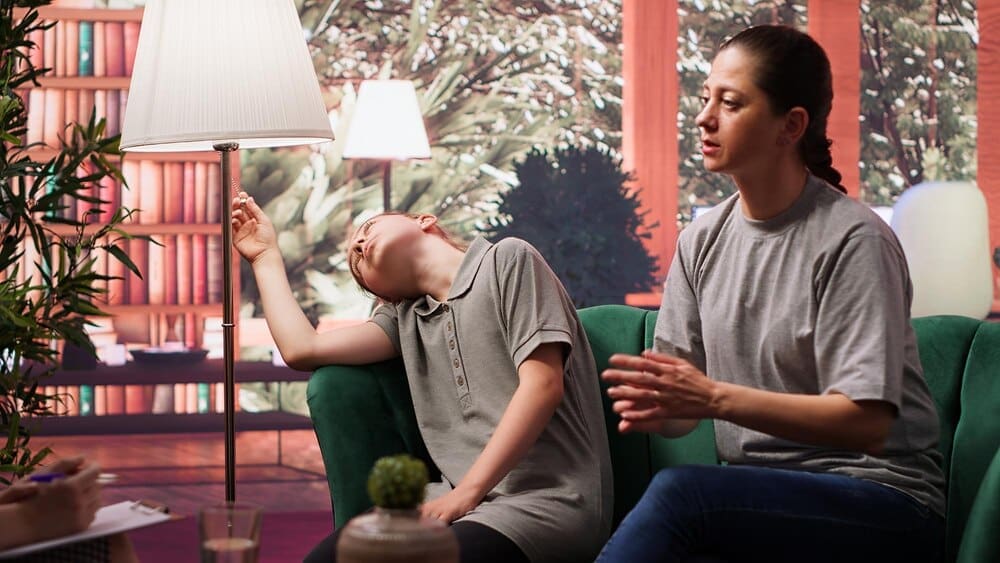In the vibrant, sun-drenched, and often transient landscape of Miami, the intentional cultivation of a strong social support system—a personal “tribe”—is not a social luxury but a fundamental pillar of mental well-being. For the diverse residents navigating this dynamic city, from recent transplants to lifelong locals, a reliable network of friends, family, and peers provides the essential emotional resilience, practical help, and profound sense of belonging needed to buffer against life’s inevitable stressors. This support is the key to navigating Miami’s unique pressures, including its fast-paced “hustle” culture and the pervasive loneliness that can paradoxically thrive amidst its bustling crowds, ultimately serving as a critical defense against anxiety, depression, and isolation.
The Undeniable Science of Social Connection
The need for community is not merely a feeling; it is a biological imperative etched into our DNA. Decades of research in psychology and neuroscience have demonstrated that meaningful social bonds are as vital to our health as nutrition, sleep, and exercise. When we engage in positive social interactions, our brains release a cascade of neurochemicals, most notably oxytocin, often called the “bonding hormone.”
Oxytocin fosters feelings of trust, empathy, and connection, while also actively lowering levels of cortisol, the body’s primary stress hormone. This creates a powerful physiological effect known as “social buffering,” where the presence of supportive individuals can make stressful situations feel less threatening and more manageable. In essence, your tribe acts as a biological shock absorber.
Conversely, chronic loneliness and social isolation have been shown to have a detrimental impact on health, comparable to smoking 15 cigarettes a day. A lack of social connection is linked to increased inflammation, compromised immune function, and a higher risk for a host of mental and physical health conditions, including major depressive disorder, anxiety disorders, and cognitive decline.
Navigating the Unique Pressures of the Magic City
While the need for connection is universal, building and maintaining that connection in Miami comes with a unique set of challenges and opportunities. Understanding this specific context is the first step toward successfully building your tribe.
The Transient Tide
Miami has long been a magnet for people from across the country and around the world, drawn by its economic opportunities, cultural vibrancy, and idyllic weather. This constant influx means the city has a transient nature. Friendships can feel fleeting as people often move for new jobs, family reasons, or simply a change of scenery, making it difficult to establish the deep, long-term roots that foster a stable support system.
The Pressure of Paradise
The city’s image is one of glamour, success, and perpetual celebration. Social media feeds are often a curated highlight reel of beach days, exclusive parties, and luxurious lifestyles. This can create an intense pressure to project an image of perfection, which makes it incredibly difficult to be vulnerable and admit when you are struggling. This “paradise tax” can exacerbate feelings of inadequacy and isolation, as one might feel they are the only person not living a flawless life.
A Culture of Hustle and Bustle
Miami operates at a high frequency. The “work hard, play hard” mentality, combined with long commutes and a demanding professional environment, can leave residents with little time or emotional energy to invest in nurturing relationships. The focus is often on networking for professional gain rather than connecting for personal support, leaving many feeling connected on a superficial level but deeply lonely underneath.
A Rich Mosaic of Cultures
The city’s incredible diversity is one of its greatest strengths, offering a rich tapestry of languages, traditions, and perspectives. However, for some, this can also present a challenge in finding a community that shares their specific cultural background or communication style. Bridging cultural gaps requires effort and an open mind, which can be daunting when you’re already feeling isolated.
What a Healthy Tribe Actually Looks Like
A strong support system is not about the number of followers you have or how many people show up to your birthday party. It is about the quality and function of your relationships. A truly effective tribe provides several distinct types of support, and it is rare for one person to fulfill all roles.
Emotional Support: The Listeners
These are the people you can call when you’ve had a bad day. They offer empathy, care, and a non-judgmental ear. They don’t necessarily try to solve your problems, but they validate your feelings and make you feel seen and heard.
Instrumental Support: The Doers
This is tangible, practical assistance. It’s the friend who helps you move a couch, gives you a ride to the airport, or brings you soup when you’re sick. This type of support alleviates the logistical burdens of life, freeing up mental and emotional resources.
Informational Support: The Guides
This form of support comes from those who provide advice, guidance, and useful information. It might be a mentor at work, a neighbor who knows a reliable plumber, or a friend who has navigated a similar life challenge and can share their experience.
Appraisal Support: The Mirrors
Also known as esteem support, this involves honest feedback and encouragement that helps you see yourself and your situation more clearly. These are the friends who will celebrate your strengths, gently point out your blind spots, and believe in you even when your own self-confidence wavers.
A Practical Guide to Building Your Tribe in Miami
Knowing you need a tribe is one thing; building it is another. It requires intention, patience, and a willingness to step outside your comfort zone. Here are actionable steps tailored for the Miami environment.
Step 1: Anchor Yourself in Your Interests
The easiest way to meet like-minded people is to go where they gather. Instead of aimlessly trying to meet people at bars, focus on your genuine hobbies. If you love the outdoors, join a weekend kayaking group at Oleta River State Park or a running club that meets in Brickell. If you’re an art enthusiast, take a pottery class in the Allapattah arts district or volunteer at a gallery during Wynwood’s Art Walk. Shared activities create natural, low-pressure opportunities for conversation.
Step 2: Take the Initiative to Go Deeper
Group activities are the starting point, not the final destination. The key to turning an acquaintance into a friend is one-on-one interaction. After a group yoga class in South Beach, suggest grabbing a fresh juice nearby. If you click with someone at a professional event, follow up with an invitation for coffee. This transition from a group setting to an individual one is where real connection begins to form.
Step 3: Practice Strategic Vulnerability
You cannot build a deep connection while wearing a suit of armor. Vulnerability is the currency of intimacy. This doesn’t mean oversharing your deepest traumas on the first meeting. It means moving beyond superficial small talk. Share a real opinion, talk about a small challenge you’re facing at work, or admit you’re new to the city and finding it tough to meet people. This authenticity gives others permission to be real with you, too.
Step 4: Leverage Technology to Get Offline
Use digital tools as a means to an end. Platforms like Meetup, Bumble BFF, and niche Facebook groups can be fantastic for discovering communities built around specific interests, from pickleball leagues in Coral Gables to Spanish-English language exchanges in Little Havana. The goal is to use the app to find the event, then put your phone away and engage with the people there in the real world.
Step 5: Be Consistent, Patient, and Realistic
Building a tribe is like tending a garden; it does not happen overnight. It requires consistent effort. Show up to the same group or class regularly so you become a familiar face. Understand that not every interaction will lead to a lifelong friendship, and that’s okay. The goal is to plant many seeds, nurture the ones that sprout, and be patient with the process.
Step 6: Integrate Professional Support
Remember that a comprehensive support system can and should include professionals. A therapist or counselor is a vital part of your tribe, offering unbiased, expert guidance that friends and family are not equipped to provide. Support groups, whether for new parents, individuals grieving a loss, or those managing a specific health condition, offer a unique combination of peer understanding and structured support.
In a city celebrated for its dazzling surfaces, the most rewarding endeavor is to build something of substance beneath. Cultivating a personal tribe in Miami is an active, ongoing process, but it is also the most powerful investment you can make in your long-term happiness and mental resilience. It transforms the experience of living in a bustling metropolis from one of potential isolation into one of profound connection and shared strength.








